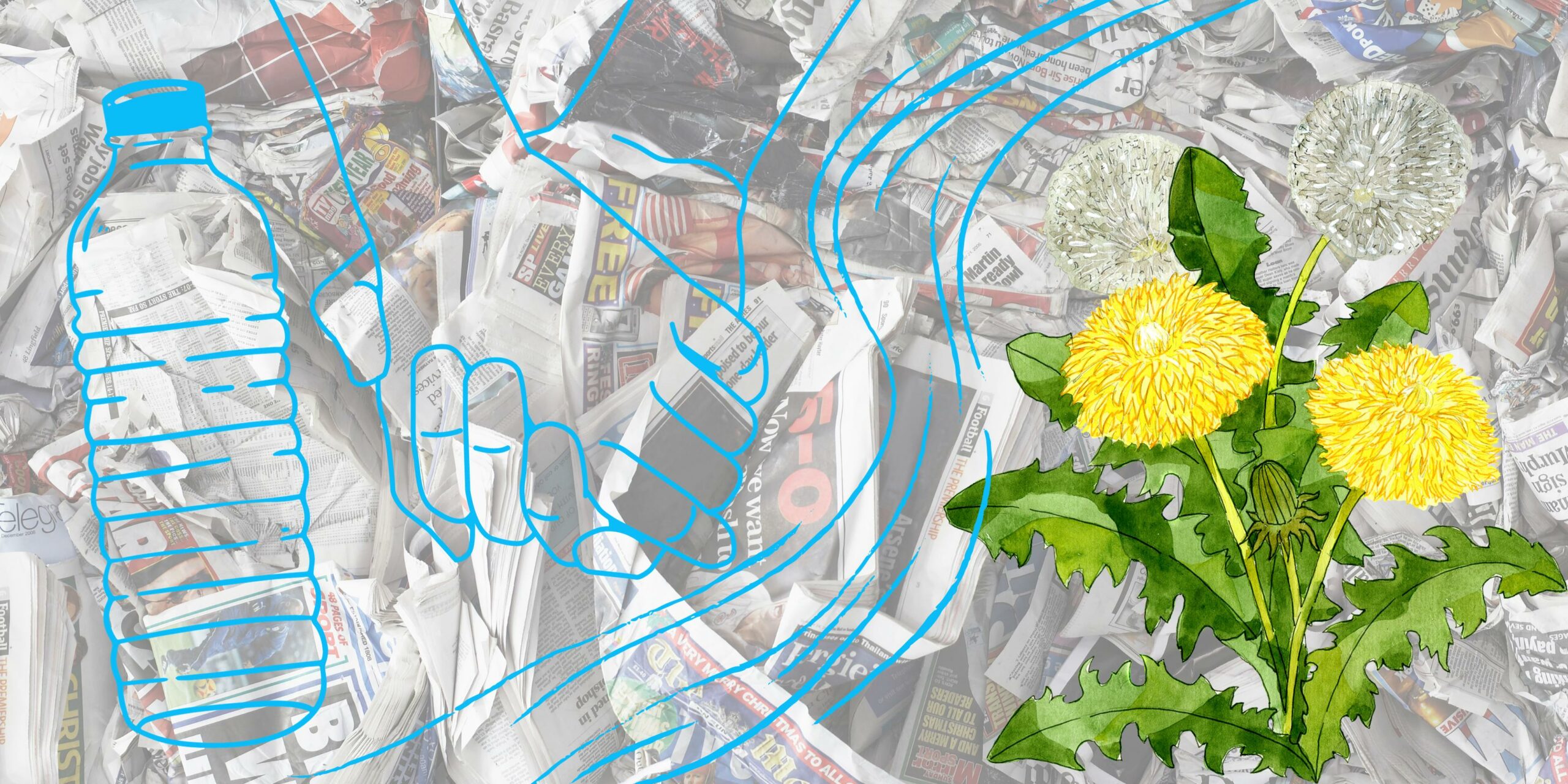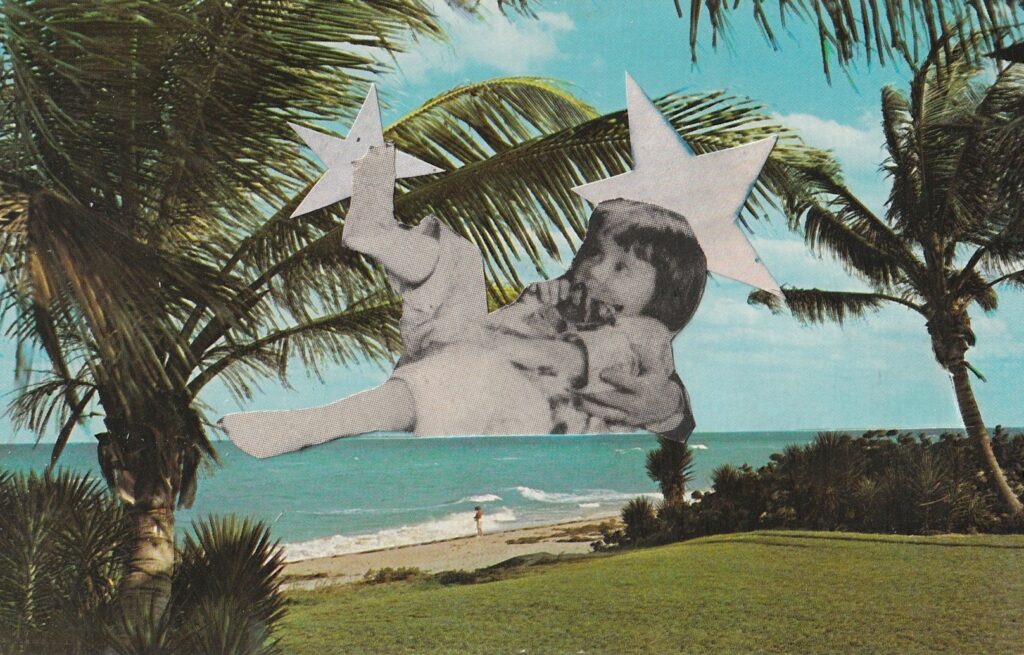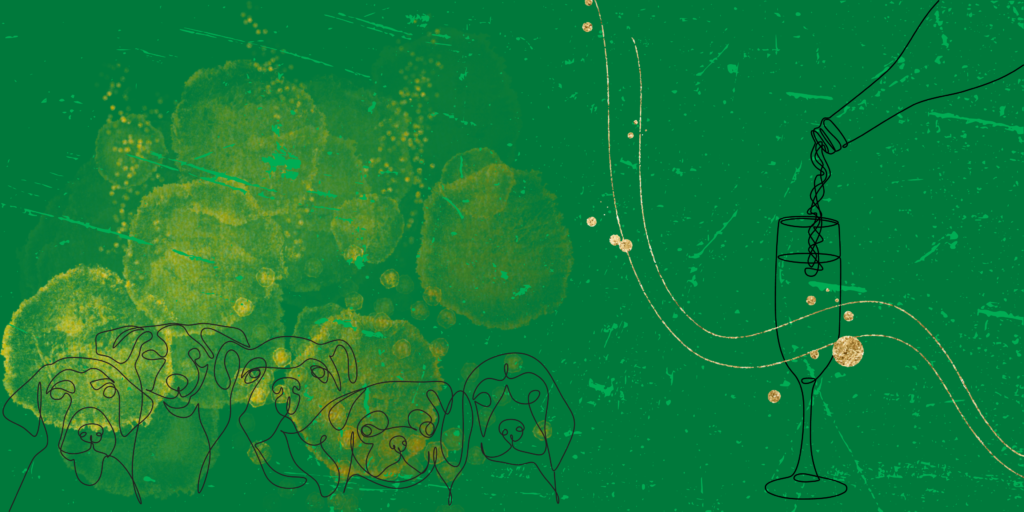We resented her white knuckles, darting eyes.

October 20, 2023
We recently found out what Mom was doing with all of the old plastic water bottles.
Years ago, when we heard about her new pastime, we thought that it was just part of her misguided low-budget disaster-preparedness regimen, the same way she collected pepper packets from McDonald’s “to throw in their eyes” and wedged rolled-up newspaper under doors “to slow them down.” When we were too young to know better, we spent our afternoons practicing with her on the floor: stay still if stuck in quicksand, spread out if falling from a plane, feign sleep if a kidnapper snatches only your sister from the bottom bunk. We laid limp, the living room carpet dusty and coarse against our cheeks, and watched her graying hair flutter with every breath.
When she wasn’t preparing, she was preventing. “Never look a dog in the eyes,” she told us. “You might challenge it.” We held hands, shuddering at the phantom bite.
“Never wave at other drivers; they may have guns and shoot you,” she warned over her shoulder, dropping us off at school.
Often, if not daily: “If there is a flood, do not wait for each other. Run to the highest ground.”
None of us knew where she banked, in case any of us turned against her. None of us were allowed to open her purse.
We resented her white knuckles, darting eyes. Her insistence that we save ourselves and leave everyone else for dead. We dreaded her meaningful squeezes of our hands when she was proven right: we kept our eyes trained on the wagging tails of dogs we walked past, and we were never bitten.
Once we all moved out, we only visited as long as needed to clear the gutters and empty the garbage. We tried to provoke safety in the world—leaving our apartment doors unlocked to prove that nothing would happen, drinking from the punch bowl, walking home at night with headphones on. We learned to surf. We traveled solo. We described our escapades to her in detail, to shock her, prick her, souse her in reality sharp and cold. We spent afternoons shouting through the screen door, at the gray cocoon of blankets clasped tightly at the chest in two fists, hair clinging to her face like rivulets of rain.
“I will not pay your ransom if you are held hostage,” she sniffed and closed the curtains in our faces.
We never admitted to each other that we still called “Hello” loudly before rounding blind corners, still practiced swimming perpendicular to the riptide in case we ever got caught in one. We each kept secret emergency keys to the house, though we never went inside to see her.
Visit after visit, she remained vigilant, perhaps slightly preoccupied, alternating between specific advice and general caution. “Nobody knows what will happen, you girls must think smart, cannot just depend on family,” she hissed at us as we weeded the front lawn, as we were no longer allowed through the backyard gate. She perched herself hawkishly by the windowsill as we dragged buckets of creeping thistle to the yard waste bin. “Do not swim for two hours after eating fried foods. Do not underestimate the ocean. Always leave doors open for yourself.”
That winter, our old classmate texted us, Is your Mom going through my trash every week? We tried to wring from our minds the images of Mom in her red fleece and green rubber boots, stooped over sour-sweet, leaking bins, studiously picking through the sticky soda cans, flattened juice boxes. We ignored the message, and, embarrassed, let the dandelion and clover choke out the grass, let the snow melt rather than shovel it. We had been helping out of habit, tradition, a false sense of obligation—almost superstitiously, to ward off the calamities over which she seemed to hold sway. Yet even after we stopped thinking of her, our flights landed safely, and the swells we spotted on the horizon broke gently like lace scarves unraveling on the beach. We learned to sleep easy, save for the brief visions of her lying flat on the graying carpet, breathing noiselessly, composing herself for the last moments that could happen at any moment.
The last time we can remember speaking with her, we could scarcely make out her bundled form in the unlit gray foyer. “You may think that you are prepared,” she sneered, her voice crackling like the tide raking over a pebbled beach, like a gathering storm. “But only I have planned. I choose my big disaster, which I fight daily with courage. Unlike you, lazing like seals in your sunny lives, waiting to be snatched from the rocks by any shark with teeth.” That year, we moved to the coast, close enough to smell the sharp salt brine from our kitchen windows.
We only realized that she had died when we taunted her with our children’s swim meet trophies and heard no answering advice. Within hours, we unlocked the doors of our old house and shouted “Hello” into the empty living room where we had spent hours spreadeagled, imagining our grisly deaths and improbable survivals. Cautiously, reverently, holding hands, we turned the corner into the backyard. And amid a field of pink and yellow weeds we found a raft made of plastic water bottles, lashed together with twine and duct tape, big enough for three.



